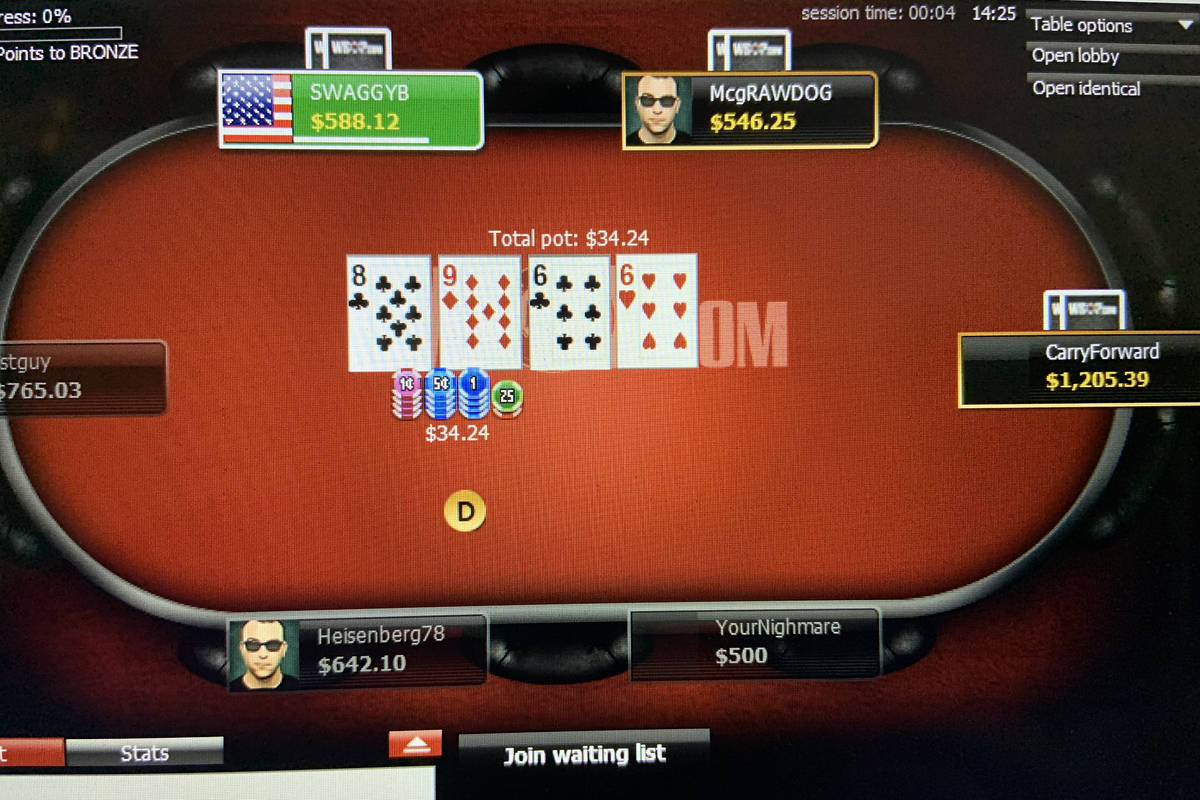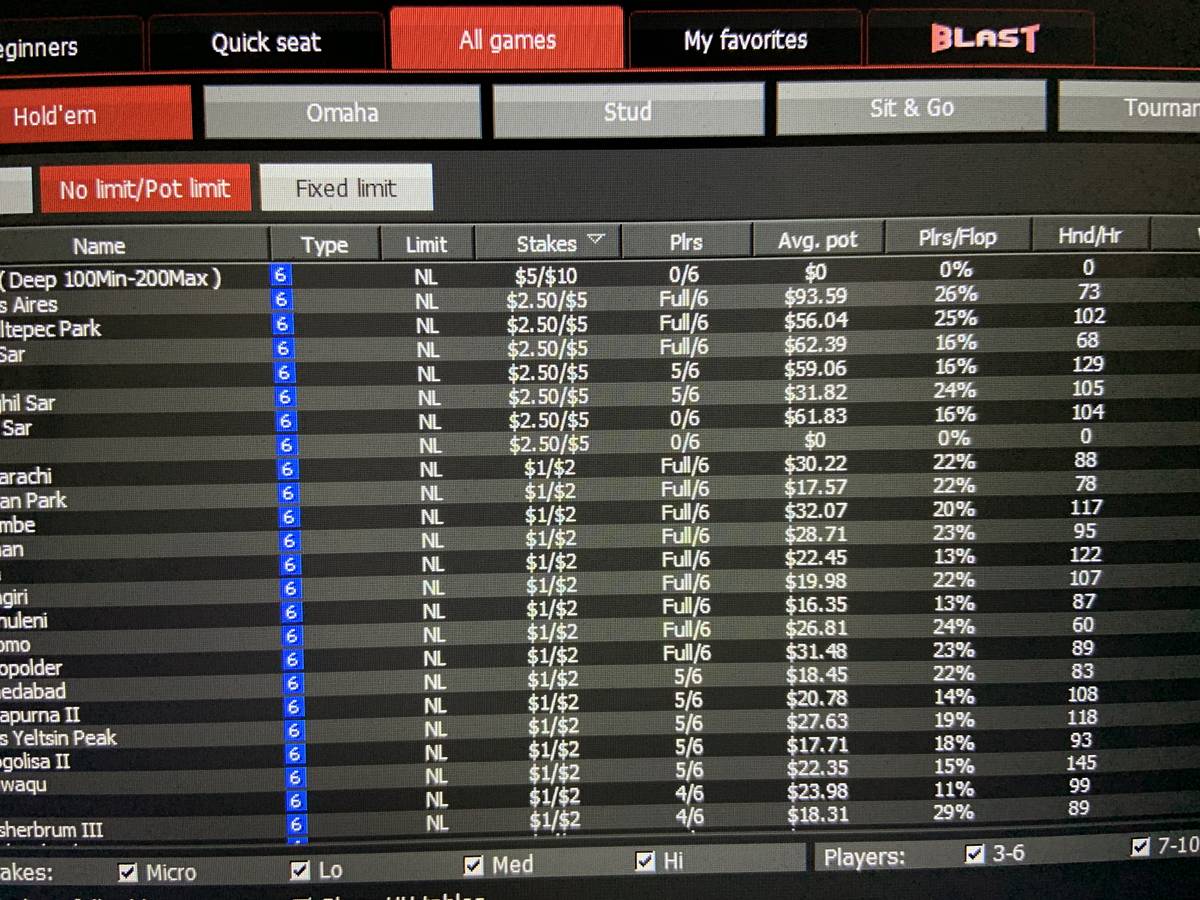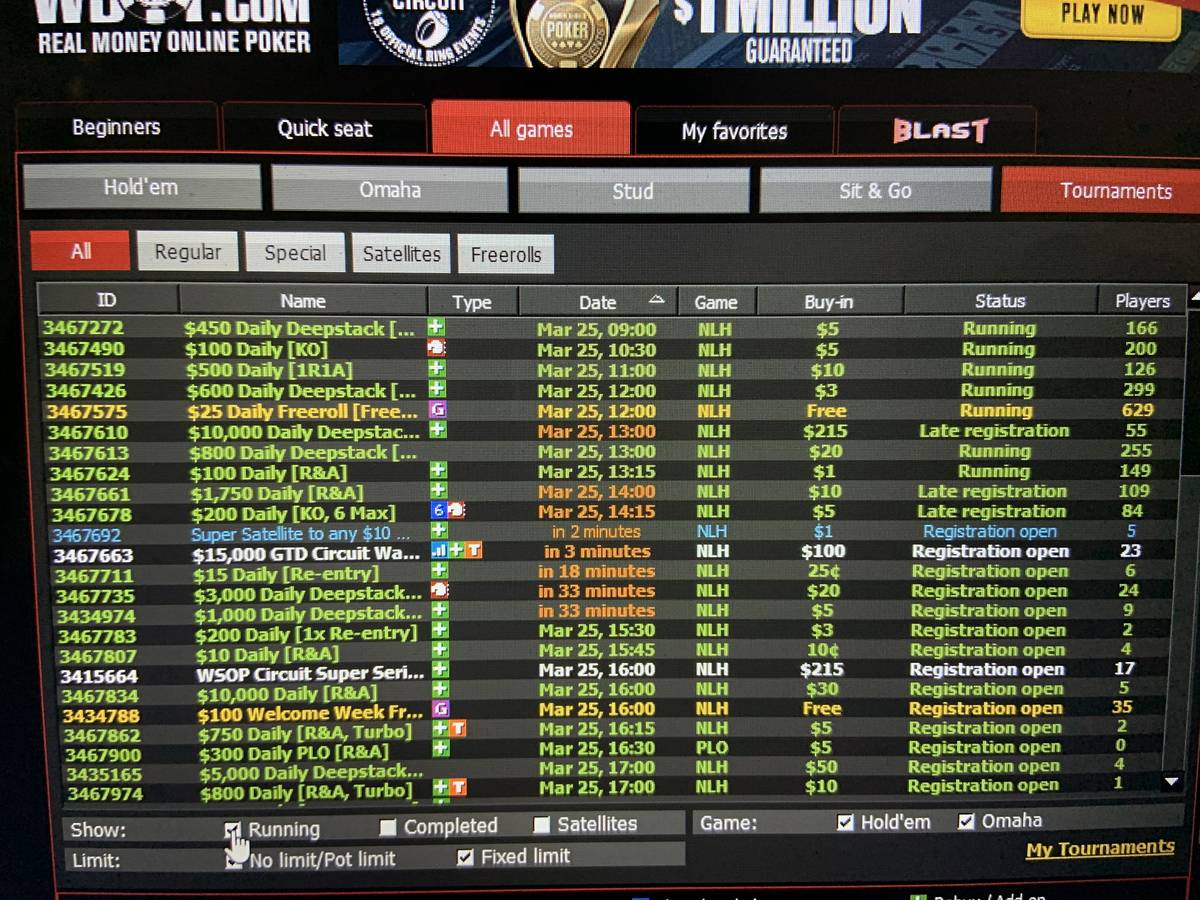Online poker traffic spikes amid casino shutdown
The closure of live poker rooms amid the coronavirus pandemic has given a boost to their online counterpart.
WSOP.com, the major legal online poker operator in Nevada, reported recent traffic that is 46 percent higher than during its yearly peak when the World Series of Poker is taking place at the Rio. And that usual summer peak is double or triple the site’s normal daily traffic, said Seth Palansky, vice president of corporate communications for the WSOP.
“We have never seen it,” he said. “It makes sense. There aren’t many options out there.”
The WSOP postponed several of its recent live Circuit tournament series and instead offered an 18-event Online Super Circuit Series on WSOP.com.
That series has shattered the guarantees for tournament prize pools, according to data provided by Palansky. Through nine events, each tournament had at least doubled its guarantee, and in many cases tripled it. A total of 5,971 entries had created a total prize pool of more than $1.8 million.
So when this series ends March 31, WSOP.com will immediately start a new tournament series with total guarantees of around $4 million, compared with about $1.5 million for the current series, Palansky said.
“When you’ve got ’em, keep it going,” he said.
Cash game traffic also has been way up, and account sign-ups have been their highest since the site opened, Palansky said.
Professional poker player Andrew Neeme has been one of the people hitting the online tables more with his normal live games closed, and he said he has noticed the influx of players.
“There are definitely more games running and more unfamiliar screen names,” he said. “That creates a cycle that encourages players to play more on the site.”
Palansky said his only frustration was that the stalled state of online poker in the U.S. has meant only players from Nevada, New Jersey and Delaware were able to compete against one another on WSOP.com.
During the early-2000s poker boom, before federal legislation largely cut off online poker for Americans, players from the U.S. were able to compete with players all around the world on major sites such as PokerStars and PartyPoker.
States were later allowed to decide whether to offer online poker, and Nevada became the first to do so in 2013.
When WSOP.com launched, players were frustrated with the relatively few games and smaller prize pools available with the player pool limited to only people physically in Nevada, Palansky said. WSOP.com hopes that more states will legalize online poker, and that the players giving the site a try now will stick around after the live rooms open, he said.
“Maybe they’ll say, ‘Hey, this is great. I can stay home, and the prize pools are the biggest in Nevada outside the WSOP,’” Palansky said. “… The bigger picture is getting a more robust market.”
That market certainly exists worldwide. PokerStars’ recent $215 buy-in Sunday Million tournament set a company record by creating a prize pool of more than $18.6 million from 93,016 entries.
A player from Brazil with the screen name “AAAArthur” won $1,192,802.
Contact Jim Barnes at jbarnes@reviewjournal.com or 702-383-0277. Follow @JimBarnesLV on Twitter.

























